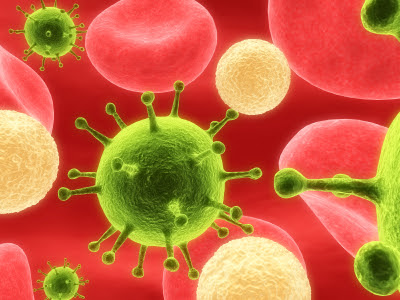Do viruses get sick or die like all living things?
Death apart, years of debate have centred around the question of whether viruses are living or non-living things in the first place. T...
https://getallsolved.blogspot.com/2013/09/do-viruses-get-sick-or-die-like-all.html
Death apart, years of debate have centred around the question of whether viruses are living or non-living things in the first place. This is because viruses (shown in blue along with red blood cells in the illustration below), unlike true microorganisms, are not cells, do not replicate by binary fission nor contain any genome (DNA or RNA) surrounded by protein coat. A virus can multiply only after it enters a host cell. Ironically when it injects its genetic material into a host in order to reproduce, all that remains of the invading virus is its protein coat. Technically, you could say its dead. A virus which has not gained access to a host cell can survive outside only under favourable conditions. When conditions change, it dies. Some viruses are destroyed by the ultraviolet rays in sunlight; others succumb to lack of moisture. Since viruses are disease-causing agents, we hardly think of them as vulnerable to sickness, but in a broad sense a virus can get infected by another one. For example, Hepatitis D virus can steal Hepatitis B's protein coat, thereby making it 'sick', i.e. weaker.













